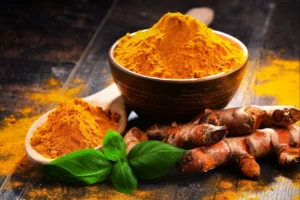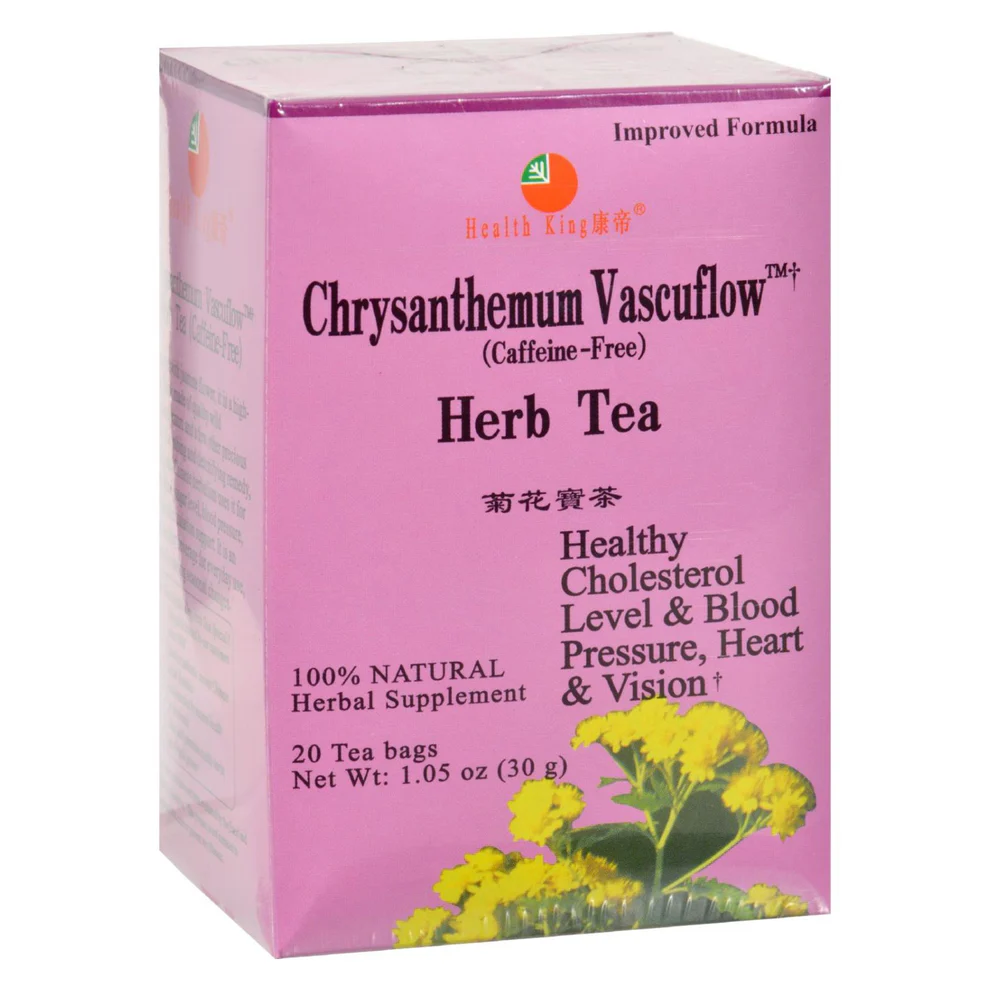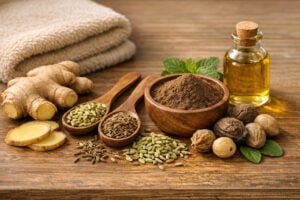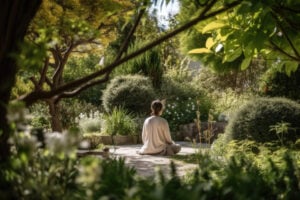
The Rhythm of Sleep: Reconnecting With Nature’s Clock
By Dr. Puja Shah
Have you ever woken up after what should have been a full night’s sleep, only to feel heavy, foggy, or just as exhausted as when you went to bed? You’re not alone.
Modern life has pulled many of us out of rhythm. Between late-night scrolling, blue light exposure, round-the-clock stress, and inconsistent schedules, it’s no wonder so many people struggle with sleep today. Even if we manage to spend “enough” hours in bed, the quality of that sleep often leaves us tired.
Ayurveda has a simple explanation for this: sleep is not just about quantity. It’s about quality, alignment with nature, and the way our body and mind prepare for rest.
Sleep as a Pillar of Health
Ayurveda describes nidra (sleep) as one of the three pillars of health, alongside food (ahara) and energy or lifestyle (brahmacharya). Without balanced sleep, the other two cannot hold steady.
- Restful sleep allows the body to repair tissues, strengthen immunity, and regulate hormones.
- It clears the mind, sharpens memory, and supports emotional balance.
- It restores energy, giving us the capacity to meet each day fully.
When sleep is poor, digestion weakens, cravings grow, emotions feel unsettled, and vitality fades. This is why even 8 hours in bed may not translate into true rest.
Why “Enough Sleep” Still Leaves You Tired
From an Ayurvedic perspective, exhaustion after sleep often comes down to circadian misalignment. Our bodies are designed to rest and rise in rhythm with the sun. But when we stay awake long past sunset, expose ourselves to blue light, or sleep late into the Kapha hours of the morning, we disturb this natural cycle.
Another reason: doshic imbalance.
- Vata imbalance often shows up as restlessness – tossing and turning, or trouble falling asleep.
- Pitta imbalance can cause waking in the middle of the night with heat, agitation, or racing thoughts.
- Kapha imbalance may lead to oversleeping and grogginess, even after long hours in bed.
The body may spend “enough” time horizontal, but without depth and alignment, it never reaches true restoration.
The Power of Evening Rituals
One of Ayurveda’s gifts is the concept of dinacharya – daily rituals that tune us into balance. Evening rituals are especially important, because they tell the nervous system: it’s time to rest.
A few simple but powerful practices:
- Oil massage for the feet with sesame or coconut oil calms Vata and grounds the mind.
- Warm spiced milk with nutmeg, cardamom, or saffron gently soothes digestion and encourages deep sleep.
- Herbal tea blends with chamomile, licorice, or fennel support relaxation.
- Screen-free wind down – reading, journaling, or meditating by candlelight instead of scrolling on a phone.
These rituals may seem small, but when repeated consistently, they create a rhythm that signals safety and calm to the body, preparing it for deeper sleep.
Herbs for Deeper Rest
Ayurveda also turns to certain herbs known for supporting sleep, not by forcing unconsciousness but by balancing the nervous system.
- Jatamansi: deeply calming for the mind, reduces overthinking, and supports restorative rest.
- Ashwagandha: a Rasayana (rejuvenator) that lowers stress, balances cortisol, and helps the circadian clock reset.
- Brahmi: clears mental clutter and supports relaxation before bed.
- Tagara (Indian Valerian): calms agitation and promotes deeper sleep.
These herbs can be taken as teas, powders, or oils, often combined with other lifestyle adjustments for best effect. Unlike sleeping pills, they work with the body’s rhythms rather than overriding them.
Aligning With Nature’s Clock
-Perhaps the most important Ayurvedic teaching on sleep is to align with nature’s cycles.
- Sleep before 10 pm: After this, Pitta time begins (10pm – 2am), which activates digestion and mental activity. Staying awake leads to “second wind” energy, making it harder to rest.
- Wake before sunrise: Rising early taps into Vata’s lightness and clarity. Sleeping past sunrise pulls us into Kapha’s heaviness, creating grogginess.
- Protect the transition: Just as sunrise and sunset mark shifts in energy, treating these times as sacred, with meditation, prayer, or quiet reflection, helps the body sync with natural rhythms.
When we honor these cycles, sleep becomes not just longer, but deeper and more renewing.
Breath and Letting Go of the Day
Stress is one of the most common barriers to sleep. The body may be in bed, but the mind is still in motion. Ayurveda offers simple breath practices to release the day and prepare for rest.
Two of my favorites:
- Nadi Shodhana (Alternate Nostril Breathing): balances the left and right channels, calming both body and mind.
- 4-7-8 Breath: inhale for 4, hold for 7, exhale for 8. This deeply soothes the nervous system and promotes melatonin release.
Even 3 minutes of conscious breathing before bed can transform sleep. Paired with meditation, gratitude journaling, or mantra chanting, it creates space for the mind to let go.

Sleep for Women and Men
While everyone needs restful sleep, Ayurveda recognizes that the challenges may differ.
For women, hormonal cycles can disturb sleep – during menstruation, pregnancy, or menopause. Evening rituals, balancing herbs like Shatavari, and cooling practices can be especially supportive.
For men, overwork and mental stress often dominate. Physical relaxation practices like yoga, breathwork, or warm oil massage help release tension.
The root is the same: when rhythms are disturbed, sleep suffers. But when balance is restored, vitality returns for both women and men.
Sleep as Renewal, Not Just Rest
We often think of sleep as simply “turning off.” But Ayurveda reminds us it’s much more than that. Sleep is when the body’s deepest repair happens: tissues rebuild, the mind resets, and immunity strengthens.
Even if we spend eight hours in bed, renewal only happens when we prepare the body, align with circadian rhythms, and calm the mind.
True rest isn’t measured in hours. It’s measured in depth, alignment, and balance. When we reclaim our nights with Ayurveda’s wisdom, we reclaim our days with clarity, energy, and vitality.

About Dr. Puja Shah, Editor-in-Chief of The Natural Law
Dr. Puja Shah is an award-winning author whose 93-year-old grandmother swore by Ayurvedic remedies and practiced yoga into her last days. And so while her education includes 9 years of medical training as a dentist, 3 teaching qualifications in yoga, and dozens of courses in meditation, it’s no wonder that she always goes back to Ayurveda. Puja harnesses Ayurveda regularly with her children and husband Amish Shah, Founder of The Natural Law.
Is Your Gut Behind Your Fatigue, Mood Swings & Poor Sleep?
Ayurveda and modern science agree: when the gut is out of balance, your whole body suffers. Low energy, weight struggles, restless nights, and even emotional ups and downs often start in the digestive system.
Our FREE Ayurveda Gut Masterclass is designed to help you heal and strengthen your gut the natural way. Guided by a panel of Ayurvedic doctors, you’ll discover your unique digestion type, learn how to clear toxic buildup, and explore simple daily tools to restore balance and vitality.

Benefits: Chrysanthemum tea is known for its cooling properties, making it an excellent choice for reducing heat in the body. It also supports vascular health and overall well-being.



© 2023 The Natural Law | Privacy Policy | Terms of Use






